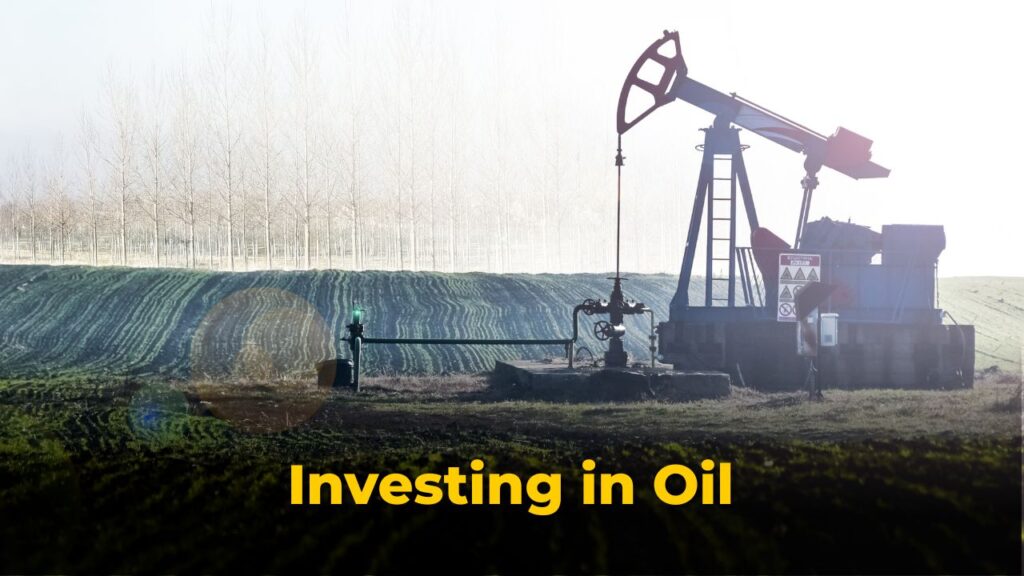Introduction
As the world continues to adapt to economic shifts, technological evolution, and environmental priorities, oil remains a key resource in the global energy ecosystem. While renewable energy gains momentum, oil continues to fuel industries, transportation, and economies, especially in developing regions. For investors aged 35 and older who are often looking for stability and long-term value, oil investment can be a consideration worth exploring.
This article examines the contemporary oil market, outlines various ways to invest, and discusses key considerations without making claims or exaggerated promises. It also introduces references such as https://oilprofit.com.mx/ and Pemex for informational purposes only.
The Role of Oil in the Modern Economy
Oil’s Enduring Importance
Despite growing environmental concerns and the rise of renewables, oil continues to power global logistics, aviation, and manufacturing. In 2025, oil’s demand persists due to:
- Continued industrialization in Asia and Africa
- Limited renewable infrastructure in several nations
- Petrochemical and plastics manufacturing
- Dependence on oil for transportation in emerging economies
Supply and Demand Dynamics
Oil prices are largely governed by supply and demand. Factors influencing this include:
- OPEC+ production decisions
- Geopolitical instability
- Technological advances in drilling and extraction
- Natural disasters and pandemics
In recent years, supply restrictions from geopolitical conflicts and sanctions have contributed to oil price fluctuations, creating both challenges and opportunities for investors.
Ways to Invest in Oil
There are multiple avenues for investing in oil, each with its own set of risks, accessibility, and return potential. Here’s a neutral overview:
1. Oil Company Stocks
Buying shares in oil exploration, production, or services companies is one of the most common methods of investment. These stocks can be traded like any other equity on public exchanges.
Advantages:
- Liquidity
- Dividend potential
- Access through standard brokerage accounts
Considerations:
- Sensitive to oil price changes
- Subject to regulatory and environmental scrutiny
2. Exchange-Traded Funds (ETFs)
Energy ETFs track a basket of oil-related companies, providing diversified exposure without the need to pick individual stocks.
Popular Energy ETFs:
- Energy Select Sector SPDR Fund (XLE)
- Vanguard Energy ETF (VDE)
Advantages:
- Built-in diversification
- Lower management fees than mutual funds
Considerations:
- Performance is tied to overall sector health
3. Futures and Options
Futures contracts allow traders to speculate on the future price of oil. While potentially lucrative, they are complex and not recommended for beginners.
Key Points:
- High risk and reward
- Require margin accounts
- Better suited for institutional or experienced investors
4. Bonds from Oil-Producing Nations or Corporations
Sovereign bonds or corporate bonds tied to the oil sector provide fixed income and exposure to oil.
Case in Point: Pemex: Pemex, Mexico’s national oil company, offers investment pathways through debt instruments. While not without risks, some investors view these bonds as part of a long-term, yield-generating strategy. Learn more at Pemex.
5. Online Trading Platforms
Platforms such as Oil Profit offer automated access to oil market data. These platforms are sometimes used by individuals seeking simplified exposure to oil market trends.
Disclaimer: Inclusion of such platforms is for informational reference only. Investors should conduct thorough due diligence and avoid assuming any guaranteed outcomes.
Market Factors Influencing Oil Investments
Geopolitical Risks
Oil supply chains are vulnerable to geopolitical events such as:
- Armed conflicts
- Trade sanctions
- Nationalization of oil assets
These events can cause price spikes or declines that affect all oil-linked investments.
Economic Growth
Global economic performance directly affects oil demand. Booming economies increase demand for transport and manufacturing, driving oil consumption higher. Conversely, economic slowdowns often reduce demand.
Technological Innovation
Improvements in drilling technologies, such as horizontal drilling and hydraulic fracturing, have transformed supply potential. Technology also enhances data analysis and forecasting capabilities for platforms and investors alike.
Environmental Policy and Regulations
Governments across the globe are introducing policies to curb emissions and transition to clean energy. This may:
- Introduce carbon taxes
- Restrict new drilling projects
- Incentivize renewables over fossil fuels
These factors create long-term shifts in oil market expectations.
Risk Management for Oil Investors
Understand Your Risk Tolerance
Oil investments can be volatile. Before committing capital, assess your personal comfort level with risk. Conservative investors might prefer ETFs or dividend-yielding stocks, while aggressive investors may look at futures or emerging-market assets.
Diversification
Don’t place all your capital in one asset class or sector. Consider blending oil exposure with other investments like technology, healthcare, or bonds.
Stay Informed
Knowledge is essential. Monitor:
- OPEC announcements
- Global political news
- Environmental policy shifts
- Oil inventory reports
Start Small and Scale Gradually
If you are new to oil investing, start with modest allocations. Learn how your investments respond to market movements before committing significant capital.
Ethical and Environmental Considerations
Investors increasingly consider the environmental impact of their portfolios. Oil, by nature, is a carbon-intensive industry. Many investment platforms and funds now offer ESG (Environmental, Social, Governance) ratings to help investors align their values with their investment choices.
Consider companies that:
- Commit to reducing emissions
- Invest in clean technology
- Maintain transparency and corporate responsibility
Oil vs Renewable Energy: Competing or Coexisting?
Transition, Not Replacement
While renewables are expanding, oil is not being phased out immediately. Both energy types are expected to coexist for decades. This transitional period can create investment opportunities in both sectors.
Hybrid Portfolios
Many investors are building portfolios that include both traditional energy and renewable stocks or funds. This approach captures growth while managing risk.
Legal and Tax Implications
Oil investments may have tax consequences, including:
- Capital gains taxes
- Dividend taxes
- Foreign withholding taxes (for international investments)
Consult a licensed tax advisor to understand local and international tax obligations related to your portfolio.
Tools for Research and Tracking
Financial News Sources
- Bloomberg Energy
- Reuters Oil Markets
- Energy Information Administration (EIA)
Market Tracking Tools
- Yahoo Finance
- Google Finance
- TradingView
These platforms can help investors track oil prices, stock performance, and sector news.
Who Should Consider Oil Investing?
Oil investment may suit:
- Investors aged 35+ seeking portfolio diversification
- Individuals comfortable with moderate to high risk
- Those with a medium to long-term investment horizon
- Investors interested in global economic trends
It may not suit:
- Investors seeking low-volatility or capital preservation
- Those who prioritize ESG or climate-conscious investing
- Individuals uncomfortable with complex financial instruments
Considerations for 2025 and Beyond
Looking ahead, oil investment will continue to evolve with the global economy, policy shifts, and technological developments. Awareness of international trends, diversification strategies, and ethical considerations can help investors make informed decisions in a rapidly changing world.
Conclusion
Oil remains a significant part of the global energy framework. In 2025, investing in oil offers both opportunities and challenges. Whether you’re exploring stocks, ETFs, or information-based platforms like Oil Profit, the key is to remain informed, cautious, and strategic.
Investing should always be aligned with your financial goals, risk appetite, and ethical values. Take the time to research, diversify, and consult with professionals before making decisions.
Disclaimer
This article is intended solely for informational and educational purposes. It does not constitute financial, investment, or legal advice. Readers are strongly encouraged to conduct their own research and consult with a qualified financial advisor before making any investment decisions. No guarantees of investment outcomes are implied or stated.




